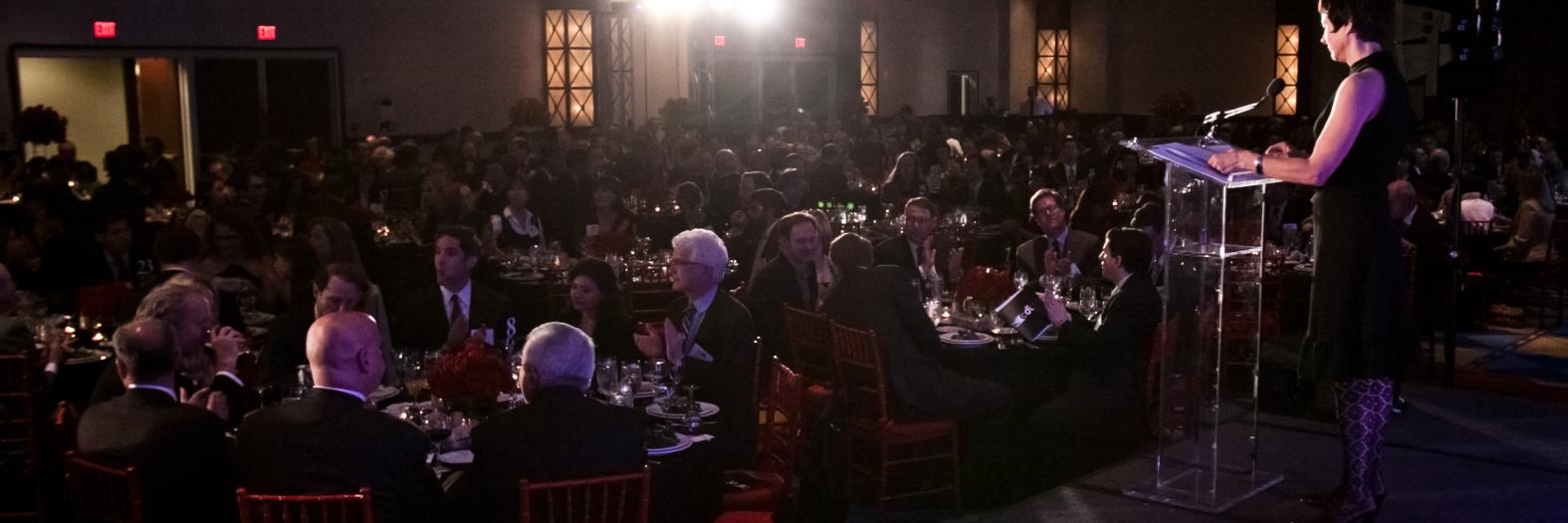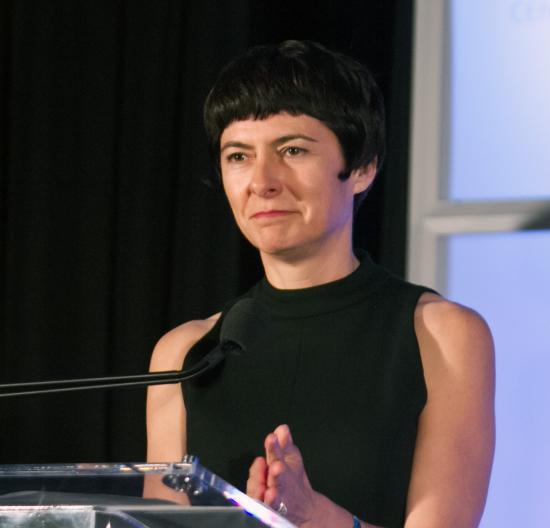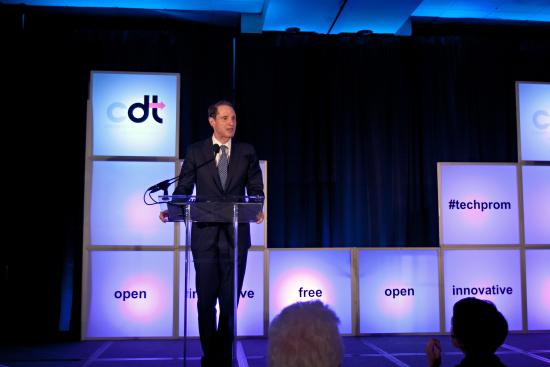Deirdre Mulligan hosted the annual gala of the Center for Democracy and Technology last week in Washington, D.C. Mulligan is an assistant professor in the School of Information as well as the chair of the board of the Center for Democracy and Technology; CDT is a non-profit public policy organization supporting information freedom, privacy, and security.
In her opening remarks, Mulligan looked back at recent landmark events in the battle for online freedom: “the nail-biting roller coaster ride of the SOPA/PIPA battle; the Supreme Court decision in the U.S. v. Jones; and the release of the administration’s Consumer Privacy Bill of Rights.”
One particularly galvanizing moment was the recent public outcry over the proposed SOPA and PIPA bills, followed by Congress’s speedy decision to abandon both bills. “My guess is that everyone in this room believes some sort of magic happened,” observed Mulligan.
The evening’s keynote speaker was Senator Ron Wyden, one of the earliest and most outspoken opponents of both SOPA and PIPA. He encouraged the CDT members to focus their advocacy on encouraging innovation. “Encouraging innovation means embracing the Internet,” said Wyden. “Of course, that’s scary because the Internet is a powerful force.”
Wyden also offered an insider’s view of the unexpected ways that information technology has affected the processes of government. “As the Internet has increasingly made it easier to be inclusive and transparent, it has become increasingly unacceptable to govern in a way that is not,” he said. “For too long, the only currency that mattered in Washington was money and its influence. Now it is clear that a new currency is emerging that is based on networks, openness, and trust. This currency holds the potential for challenging the status-quo in Washington and offering a new relationship between citizens and their elected leaders.”
The annual gala — nicknamed “Tech Prom” — drew luminaries both from the technology sector and from government. Attendees included former Rep. Rick Boucher; Facebook VP and former White House Deputy Chief of Staff Joel Kaplan; Ed Black, CEO of the Computer and Communications Industry Association; Colin Crowell, lobbyist for Twitter; ex-Google lobbyist Alan Davidson; Commerce Department Internet adviser Ari Schwartz; White House Deputy Chief Technology Officer Danny Weitzner; and National Telecommunications and Information Administration chief Larry Strickling.
“The year is off to a heady start,” said Mulligan. “There is a sense of new beginnings, playing fields opening up, and more room to run. The question is what we make of it.”












